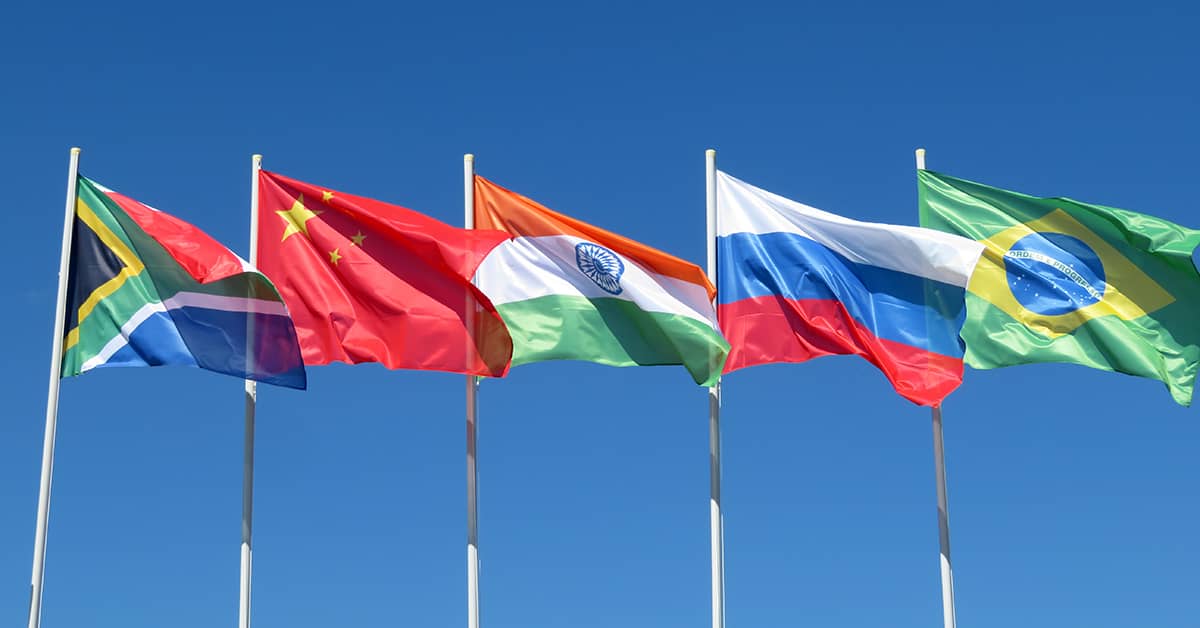Western governments have shunned Russia but doing so is not a viable option for many countries across the globe.

Not every country can afford to shut Russia out. However, what is the price of swimming against the tide of global public opinion?
Some 20 or so countries—including the US, UK, and EU member states—have made it onto Russian president Vladimir Putin’s blacklist of “unfriendly countries” after imposing harsh economic sanctions on Russia following its invasion of Ukraine, Al Jazeera reports.
For most major Western economies, the geopolitical risks from Russia’s invasion of Ukraine far outweigh the economic risks. “The security of Europe is under threat,” explains Henry Wilkinson, Chief Intelligence Officer at Dragonfly, a London-based risk intelligence firm, which is why these countries have come together to impose an unprecedented level of sanctions on Russia, despite the pain it will cause to their economies.
But for other countries, getting on Putin’s blacklist or bad side may carry too high a price. “In this conflict, economic interdependencies are critical, but sometimes limit the ability of states to take action and dissuade countries from going to war because they are dependent on that country economically,” Wilkinson says.
The war in Ukraine rages on, but those countries with close defense or economic ties with Russia continue to beat a path to its door. On the day of the invasion, Pakistan’s Prime Minister Imran Khan happened to be visiting the Russian leader to discuss closer energy and investment ties according to news reports.
It is not hard to see why. Russia has a 26% equity share in the $2.5 billion Pakistan Stream Gas Pipeline Project, which is to be built between the port of Karachi and Kasur in Punjab. Russia will provide expertise in constructing the pipeline, which is designed to fill Pakistan’s growing demand for natural gas. For Russia, looking eastwards makes sense, given that the EU has just announced plans to wean itself off Russian natural gas by 2030.
Another reason for Khan not to risk Putin’s ire is Russia’s close defense and security ties with neighboring India, which is looking to deploy Russian-made missile defense systems on its western border with Pakistan.
India is in a particularly difficult situation regarding Russia, according to Wilkinson. As well as relying on Russia in defense and security matters, it is also an ally of the US. “Maintaining a neutral position in relations with Russia is important, as India sees itself under threat from China and Pakistan. They don’t want to alienate anyone or leave themselves exposed as Russia supplies them with weapons and expertise.”
Latin American economies—which were the hardest hit by the Covid-19 pandemic—have also thrown their support behind Russia. On an official visit to Nicaragua on February 24, the chairman of Russia’s State Duma, Vyacheslav Volodin, stressed the importance of strengthening economic cooperation between the two countries in the face of sanctions pressure and the pandemic. Nicaragua was one of the first countries to approve Russia’s Sputnik V Covid-19 vaccine, and Russia is one of the largest suppliers of the vaccine to the country.
According to Brazil’s Ministry for External Relations, bilateral trade between Latin America’s largest economy, Brazil, and Russia reached $7.3 billion in 2021. Brazil is a massive exporter of agricultural products such as soybeans and coffee to Russia and depends on exports of Russian fertilizer. Another close ally in the region is Venezuela, which sought Russia’s help after the US broke off diplomatic ties with President Nicolás Maduro in 2019 and imposed sanctions on Venezuelan oil exports following allegations of electoral fraud. Ironically, the conflict in Ukraine now sees Venezuela locked in discussions not only with its long-time friend, Russia, but also its foe, the US, which is looking for non-Russian sources of oil supply.
Closer to home, the CIS group of countries is also heavily dependent on Russian economic support. “The severity of the sanctions already announced makes it inevitable Russia’s economy will contract in 2022, putting pressure on CIS+ economies through trade, remittances and tourism channels,” Fitch Ratings analysts note. Belarus, which has served as a staging ground for Russian attacks on Ukraine, is the most exposed to Russia, which accounts for around 40% of its exports and 50% of its imports, according to Fitch.
In Kazakhstan, Kyrgyzstan, and Tajikistan, Wilkinson notes their political leaderships are beneficiaries of Putin’s patronage. “If you start to see the Russian government destabilize, there is a risk of contagion affecting these former Soviet states,” he says. “We haven’t seen that yet, but the underlying risk factors are there.”
As sanctions and coordinated international action against Russia ramp up, staying ‘neutral’ could start to have its downsides, as India recently discovered. US President Joe Biden is said to be considering whether a missile deal India finalized with Russia back in 2018—deliveries of the system commenced last year—run afoul of the US’s Countering America’s Adversaries Through Sanctions Act (CAATSA), which requires the US to impose sanctions on any country doing business with Iran, Russia, or North Korea.
Countries that haven’t called Russia out for its actions in Ukraine could still get caught out by far-reaching sanctions regimes and find they cannot do business with Russia anyway. “There is an argument to say there is no reason not to get behind everybody else,” says Wilkinson, pointing to the reputational, as well as moral implications for countries that go against popular opinion.



